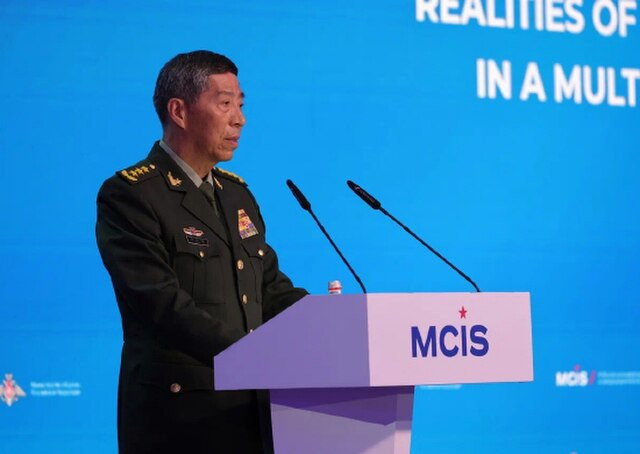In a move that highlights President Xi Jinping's relentless anti-corruption campaign, China's Communist Party has expelled former Defense Ministers Li Shangfu and Wei Fenghe for "serious violations of discipline," a term often used as a euphemism for corruption. This deepening purge within the top ranks of the People's Liberation Army (PLA) marks a significant step in Xi's efforts to cleanse the military.
On June 27, state news agency Xinhua reported that Li and Wei were expelled after investigations revealed they had accepted substantial bribes and sought personal gains. The Central Committee of the Communist Party, which conducted the investigations, concluded that both had severely breached their political responsibilities.
"As a senior leading cadre of the party and the army, Li Shangfu betrayed his original mission, betrayed the trust of the Party Central Committee and Central Military Commission, and caused great damage to the party's cause and national defense," the report stated. This statement was the first explicit confirmation from Chinese authorities regarding the corruption allegations against Li, who had mysteriously disappeared from public view two months before his removal as defense minister last October.
Li's predecessor, Wei Fenghe, faced similar accusations. Wei, who had not been seen publicly since being replaced in March 2023, was implicated in accepting a "huge amount of money and valuables" in bribes. Both Li and Wei have been stripped of their party memberships and military ranks, and their cases have been handed over to military prosecutors.
This wave of expulsions is part of a broader anti-corruption campaign within China's military, initiated by Xi Jinping. Since last year, the PLA has seen a significant number of high-ranking officers and executives in the aerospace defense industry removed from their positions. This includes 11 PLA generals and several key figures from the national legislative body.
Xi Jinping, who also serves as the military's commander-in-chief, has repeatedly emphasized the importance of rooting out corruption to maintain the integrity and strength of the PLA. Last week, Xi stated that the PLA faces "deep-seated" political problems and declared that there must be "no hiding place" for corrupt officers.
The scale of the current purge is substantial. Li Shangfu, before his role as defense minister, headed the PLA's Equipment Development Department for five years. Wei Fenghe was the inaugural commander of the PLA Rocket Force, a crucial unit overseeing China's conventional and nuclear missiles. Both roles placed them at the heart of China's military modernization efforts, which have been marred by corruption allegations.
The removal of these high-profile figures signals a continued focus on corruption within the PLA's procurement and development processes. This purge is likely connected to the Rocket Force, a key element in Xi's vision to transform the PLA into a "world-class" military force.
While the details of the corruption cases are not fully disclosed, the consequences for Li and Wei are severe. Their actions were described as causing "significant damage to the party's cause, the development of national defense, and the military," according to the Central Committee's report. The expulsions were approved by the seven-member Politburo, the apex of Communist Party power, and will be confirmed during the party's Third Plenum in mid-July.
The implications of this purge extend beyond the individuals involved. It reflects the broader struggles within China's political and military spheres as the nation grapples with maintaining control and discipline amid internal challenges. The expulsion of Li and Wei serves as a stark reminder of the high stakes and the ongoing power dynamics within the Chinese Communist Party and its military apparatus.
The expulsion of these former defense ministers also comes at a time when China is striving to assert its military prowess on the global stage. The PLA's modernization efforts are critical to China's strategic goals, and ensuring the integrity of its leadership is paramount. This purge, therefore, is not just about addressing past corrupt practices but also about setting a precedent for the future.
The removal of former Foreign Minister Qin Gang earlier this year also underscores the volatile nature of China's high-level political environment. Qin was removed after just seven months in office amid rumors of an extramarital affair that potentially compromised national security.






